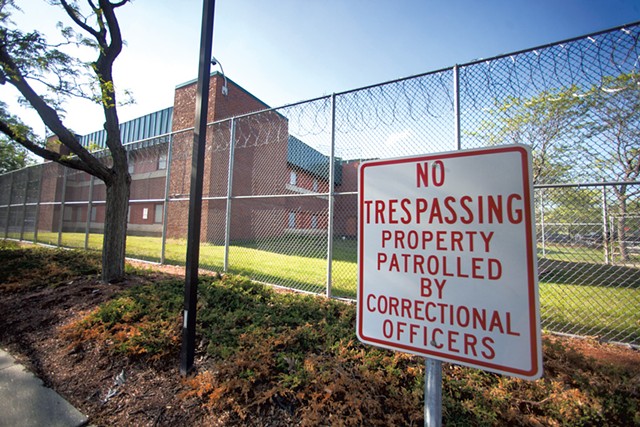click to enlarge 
Vermont legislators are questioning why so few inmates receive hepatitis C treatment, and they're demanding to know what happened to $2.2 million of state money that was designated for prison health care.
The state’s chief health care advocate, Michael Fisher, told the Joint Legislative Justice Oversight Committee on Thursday that the Department of Corrections had
only treated one inmate for hepatitis C in 2017.
Antiviral drugs can cure hepatitis C, an infectious disease that can lead to liver cancer and other potentially fatal complications. The virus, transmitted by blood, is more common among prisoners than the general population.
Fisher also directed lawmakers' attention to a significant amount of unspent money. In 2017, the Department of Corrections paid about $4.8 million to its private health care contractor, Centurion, for pharmaceutical drugs and off-site medical expenses, according to information Fisher provided the committee. Centurion only spent about $2.6 million, however.
When Sen. Dick Sears (D-Bennington), who also sits on the Senate Appropriations Committee, asked corrections officials what happened to the remaining money, he didn’t get a clear answer at first. “I just find it appalling that you can’t account for $2 million,” he said.
An audience member helped him out. “Centurion keeps the money,” piped up Chloé White, policy director for the American Civil Liberties Union of Vermont.
Department of Corrections officials conceded the point. “We identified this issue in years one through three of the contract” with Centurion and changed it for 2018, said Ben Watts, the department's health services director. “We capped their corporate overhead and profit and added the language that any savings would be [recouped]," he said.
Sears wasn't satisfied. “I want it paid back if they took it,” he said of the missing money.
Department of Corrections officials also had to defend their approach toward treating inmates with hepatitis C. Watts suggested that many — he couldn’t provide an exact number — of the roughly 250 inmates diagnosed with hepatitis C are detainees who don’t stay in prison long enough to receive the drug, which is typically prescribed for an eight-week period. He also maintained that the department offers treatment equivalent to what's provided in the community, a claim that Fisher later said "doesn't pass the straight-face test."
Agency of Human Services Secretary Al Gobeille wasn’t at the meeting, but said during a later interview that he plans to direct $2 million — in addition to the $384,000 already allocated — to treat more inmates with hepatitis C. He'll make the proposal to lawmakers on the Joint Fiscal Committee next week.
Gobeille acknowledged shortcomings in the department's approach but said officials have been working to improve and expand treatment.
“We’ve begun treating more people — certainly nothing to applaud yet — but we are heading toward the right thing,” Gobeille said.
According to Watts, the department has so far treated 10 people in 2018.




















































